第55章 Chapter 12(2)
Lady Augusta quickly repaired it by rejoining,'but she is better than she was,is she not?'Miss Browning of course assented.
There were other friends,old and new,whom Mr.Browning occasionally saw,including,I need hardly say,the celebrated Madame Mohl.
In the main,however,he led a quiet life,putting aside many inducements to leave his home.
Mrs.Browning was then writing 'Aurora Leigh',and her husband must have been more than ever impressed by her power of work,as displayed by her manner of working.To him,as to most creative writers,perfect quiet was indispensable to literary production.She wrote in pencil,on scraps of paper,as she lay on the sofa in her sitting-room,open to interruption from chance visitors,or from her little omnipresent son;simply hiding the paper beside her if anyone came in,and taking it up again when she was free.And if this process was conceivable in the large,comparatively silent spaces of their Italian home,and amidst habits of life which reserved social intercourse for the close of the working day,it baffles belief when one thinks of it as carried on in the conditions of a Parisian winter,and the little 'salon'of the apartment in the Rue du Colisee in which those months were spent.
The poem was completed in the ensuing summer,in Mr.Kenyon's London house,and dedicated,October 17,in deeply pathetic words to that faithful friend,whom the writer was never to see again.
The news of his death,which took place in December 1856,reached Mr.and Mrs.Browning in Florence,to be followed in the spring by that of Mrs.Browning's father.Husband and wife had both determined to forego any pecuniary benefit which might accrue to them from this event;but they were not called upon to exercise their powers of renunciation.
By Mr.Kenyon's will they were the richer,as is now,I think,generally known,the one by six thousand,the other by four thousand guineas.Of that cousin's long kindness Mrs.Browning could scarcely in after-days trust herself to speak.It was difficult to her,she said,even to write his name without tears.
I have alluded,perhaps tardily,to Mr.Browning's son,a sociable little being who must for some time have been playing a prominent part in his parents'lives.I saw him for the first time in this winter of 1855-6,and remember the grave expression of the little round face,the outline of which was common,at all events in childhood,to all the members of his mother's family,and was conspicuous in her,if we may trust an early portrait which has recently come to light.He wore the curling hair to which she refers in a later letter,and pretty frocks and frills,in which she delighted to clothe him.It is on record that,on one of the journeys of this year,a trunk was temporarily lost which contained Peni's embroidered trousers,and the MS.,whole or in part,of 'Aurora Leigh';and that Mrs.Browning had scarcely a thought to spare for her poem,in face of the damage to her little boy's appearance which the accident involved.
How he came by his familiar name of Penini --hence Peni,and Pen --neither signifies in itself,nor has much bearing on his father's family history;but I cannot refrain from a word of comment on Mr.Hawthorne's fantastic conjecture,which has been asserted and reasserted in opposition to Mr.Browning's own statement of the case.
According to Mr.Hawthorne,the name was derived from Apennino,and bestowed on the child in babyhood,because Apennino was a colossal statue,and he was so very small.It would be strange indeed that any joke connecting 'Baby'with a given colossal statue should have found its way into the family without father,mother,or nurse being aware of it;or that any joke should have been accepted there which implied that the little boy was not of normal size.
But the fact is still more unanswerable that Apennino could by no process congenial to the Italian language be converted into Penini.
Its inevitable abbreviation would be Pennino with a distinct separate sounding of the central n's,or Nino.The accentuation of Penini is also distinctly German.
During this winter in Paris,little Wiedemann,as his parents tried to call him --his full name was Robert Wiedemann Barrett --had developed a decided turn for blank verse.He would extemporize short poems,singing them to his mother,who wrote them down as he sang.
There is no less proof of his having possessed a talent for music,though it first naturally showed itself in the love of a cheerful noise.
His father had once sat down to the piano,for a serious study of some piece,when the little boy appeared,with the evident intention of joining in the performance.Mr.Browning rose precipitately,and was about to leave the room.'Oh!'exclaimed the hurt mother,'you are going away,and he has brought his three drums to accompany you upon.'She herself would undoubtedly have endured the mixed melody for a little time,though her husband did not think she seriously wished him to do so.But if he did not play the piano to the accompaniment of Pen's drums,he played piano duets with him as soon as the boy was old enough to take part in them;and devoted himself to his instruction in this,as in other and more important branches of knowledge.
Peni had also his dumb companions,as his father had had before him.
Tortoises lived at one end of the famous balcony at Casa Guidi;and when the family were at the Baths of Lucca,Mr.Browning would stow away little snakes in his bosom,and produce them for the child's amusement.
As the child grew into a man,the love of animals which he had inherited became conspicuous in him;and it gave rise to many amusing and some pathetic little episodes of his artist life.
The creatures which he gathered about him were generally,I think,more highly organized than those which elicited his father's peculiar tenderness;it was natural that he should exact more pictorial or more companionable qualities from them.